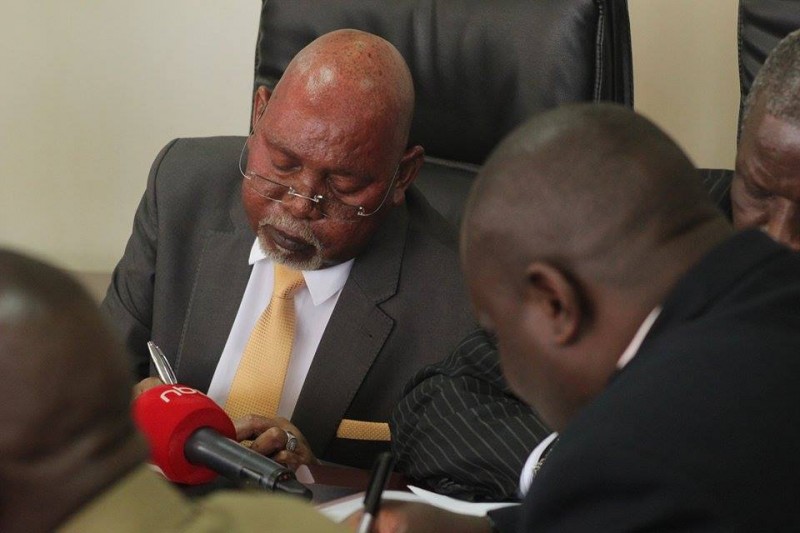International attention is now turning to Uganda. The government of Uganda has done it before, and it still has authority to disconnect commercial and private wireless networks—affecting both cellphones and the internet—in the event of an emergency, such as a viable threat of a terrorist attack,” a detective attached to the Kasese Central Police Station has boasted.
The anonymous detective says the uproar on social media over the arrest and detention of Ms Doreen Biira, a KTN journalist over illegal filing of military raid on Rwenzururu palace in which 55 people were killed has crossed the line and has to be handled by security agencies as soon as possible to prevent the undue pressure.
Joy Doreen Biira, the KTN reporter and anchor was apprehended together with her fiancee, as well as three other friends on Sunday from her home in Kasese by uniformed men yesterday evening.
She was allegedly detained over her social media post on the violence between the kingdom loyalists and national government forces.
The journalist had been giving an eye witness account on the fighting in Kasese that has left 55 people dead, including 14 police officers.
Facebook and Twitter have been used to organize opposition against Uganda’s ruling regime for at least half a decade, and the importance of social media in politics shows no sign of subsiding.
“Whatever is happening in Kasese, somebody will challenge it on the street,” our source said. “The way to get people on the street is social media. That is what governments fear and you young men now use social media as your streets.”
By press time, Government publicists were holed up at Uganda Media Centre, Clement Hill road in Kampala in for a strategy meeting.
Gen Jeje Odong a senior military officer and politician who has served as Minister of Internal Affairs is expected to present a Government position in the afternoon on Kasese clashes.

The Rwenzururu accuse government of marginalization in extension of social services and failure to address the land question.
Social media attacks government
And thousands of social media users have pulled out their guns on President Museveni’s government on Monday through hashtag #FreeJoyDoreen, which is still trending, asking the for the release of the journalist who was doing her work.
“Kasese just a hint of what a post-ICC Africa will look like. Fasten your seat belts. #FreeJoyDoreen,” chairman editors guild Linus Kaikai said.
Moses Kamukama said “Seems Ugandan Police want to experience the internet’s wrath @JoyDoreenBiira must be released immediately.”
“At a loss for words. A journalist, nay – any citizen, should not be spirited away without process or explanation. #FreeJoyDoreen,” another user Nancy Kacungira said.
Moses Atyenge said “Journalism is not terrorism. #FreeJoyDoreen.”
Another user Wokorach Musa said “Government is for the people and by the people, if it undertakes an initiative why fear it being highlighted on Media!#FreeJoyDoreen.”
Other users asked president Museveni to stop harassing his people and allow freedom of speech.
“M7 must realize that freedom of expression is a fundamental human right. Arresting someone for that shows how backward he is #FreeJoyDoreen,”Morris_Aron said.
“I wonder how u guys in UG survive there. Ata niskie yesu ameonekana Kampala let me go to hell siendi ng’o #FreeJoyDoreen,” a Kenyan user Brian Wale said.
Sam said “The liberty of a progressive society depends on the freedom of the press and citizen journalism #FreeJoyDoreen.”

When Ugandans went to the polls last February in presidential and parliamentary elections, it was the attempt to silence conversations taking place on Facebook, Twitter, and Whatsapp that produced the loudest reactions. In a country with the youngest population in the world, where 77 percent of the population is under 30 years of age, mobile apps have become vital to communication and commerce. During the four-day ban, nearly 1.5 million citizens, or 15 percent of the internet-using populace, downloaded VPN software to reroute their internet connections and return to social media, where discussion over the election continued to rage.
“When there is an unjust law or directive, it’s the duty of all right thinking humans to reject it in all manner,” Akiteng Isabella, an activist with Uganda Youth Network, said. “This is a lesson to the government that its population is young and creative and very unwilling to be held at ransom.”
Then, the government offered no warning of the blackout. It was only after the electoral commission asked the Uganda Communications Commission (UCC) to direct telecom companies to disable social media access that the UCC and the government issued explanations: the shutdown was a preventative measure to disrupt undefined security threats and stem “misinformation”.
Clashes like the ones in Kasese are hot spots of Internet censorship around Africa.
Reporting by Shafik Himbaza in Kasese











